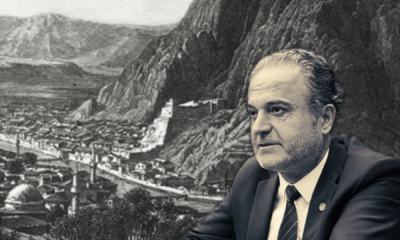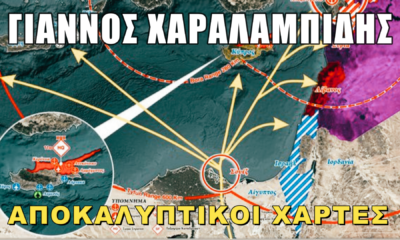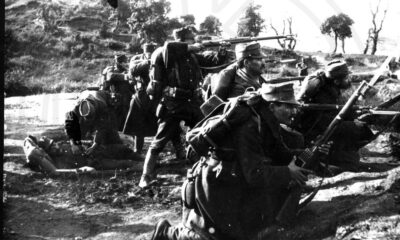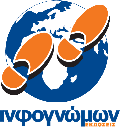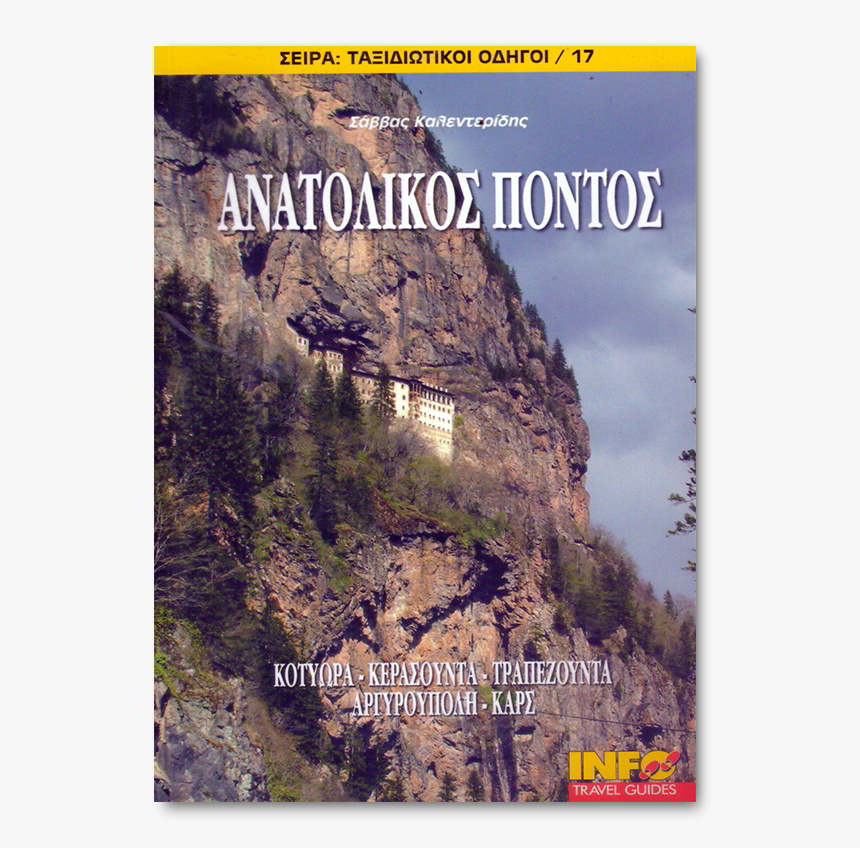ΗΠΑ
Ε δεν θα ήταν όλα μέλι γάλα – Το Ιντλίμπ αναδεικνύεται στην “αχίλλειο πτέρνα” της συνεργασίας Ρωσίας-Τουρκίας!
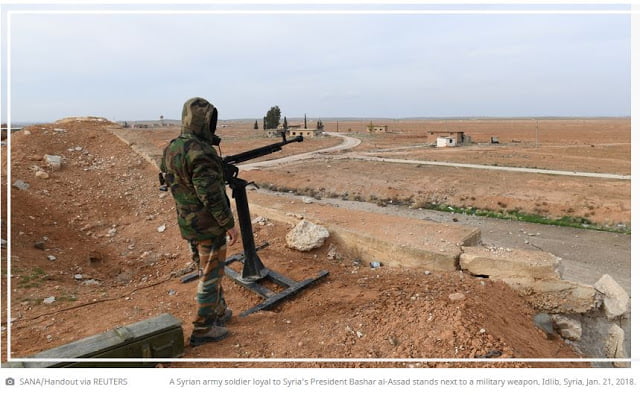
Σχετικό άρθρο: Τουρκικά ΜΜΕ: Είδηση σοκ από τη Συρία! Κοιτάξτε τι πρότεινε ο Άσαντ στους Κούρδους και το ΡΚΚ
“Current developments in Syria regarding both Tel Rifaat and Manbij are not progressing in the desired direction as of now,” Erdogan said. “The only areas where the events are going as desired are Afrin, Jarablus and al-Bab. All these [areas] are fully under our control in the terrain of 4,000 square kilometers [1,545 square miles] we control. We have also held some talks and reached some agreements regarding Manbij and Tel Rifaat. We will certainly discuss all these thoroughly during our one-on-one meeting. One of the challenging issues here is the Daraa issue, and there is also the Idlib issue. Anything can happen in those places.”

Video
Σάββας Καλεντερίδης: Πραγματοποίησε το Ιράν πυρηνική δοκιμή
Ο Σάββας Καλεντερίδης στην εκπομπή της Δευτέρας 7 Οκτωβρίου 2024
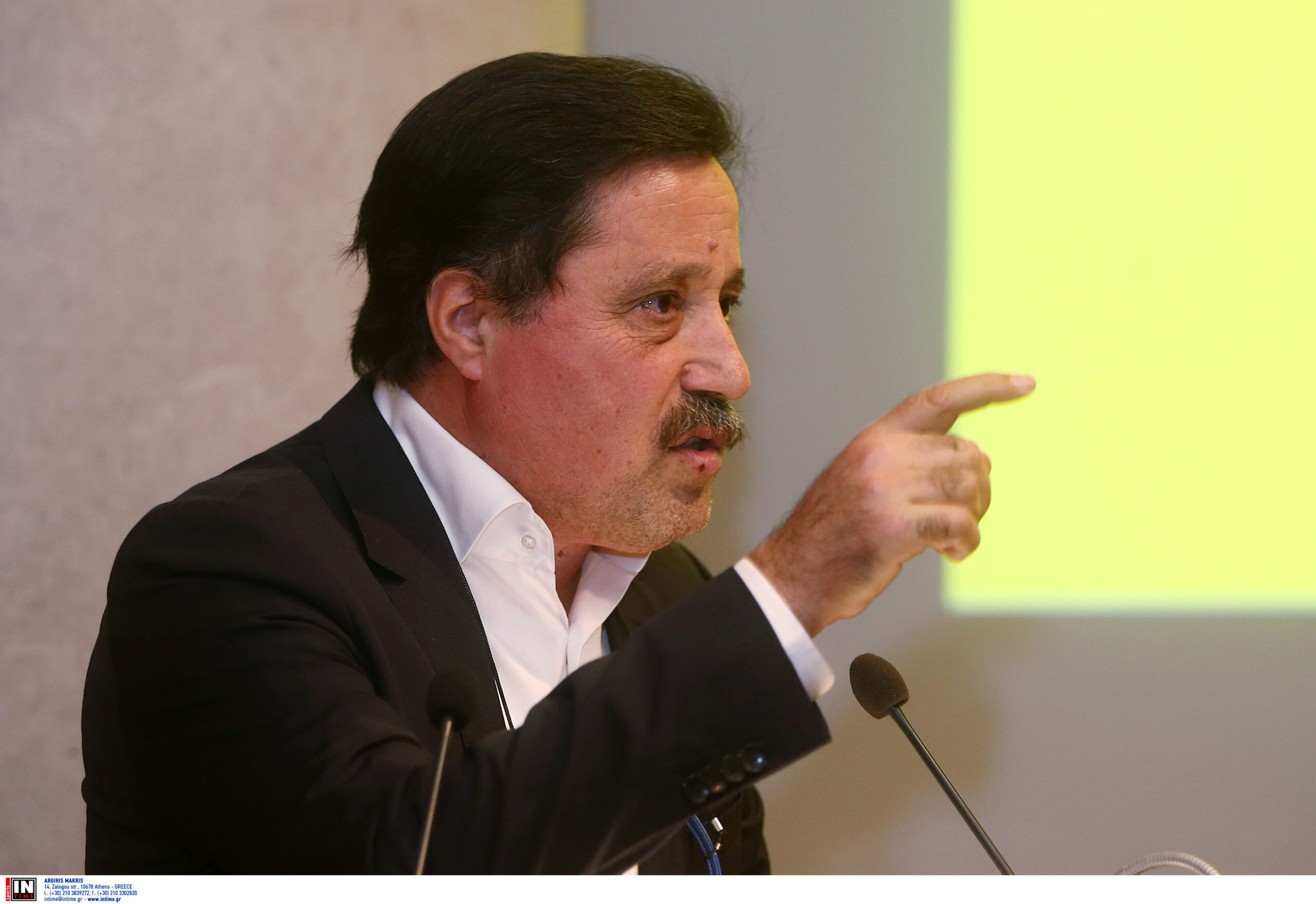
Θέματα Εκπομπής 7ης Οκτωβρίου 2024
1. Ο Παπαχελάς προειδοποιεί: Η Ελλάδα πρέπει να αποφύγει την πολιτική αποσταθεροποίηση
2. Κύπρος: Οι Τούρκοι στρατηγοί επιδιώκουν να καταλαβουν τη μισή νεκρή γραμμή 18:00
3. Τουρκία: “Βρώμικη” συμφωνία Βερολίνου-Άγκυρας 27:10
4. Ισραήλ: Η πρώτη επέτειος της εισβολής της Χαμάς – Διαβουλεύσεις μεταξύ ΗΠΑ-Ισραήλ για την επίθεση στο Ιράν 54:45
5. ΗΠΑ: Σε θρίλερ μετατρέπεται η προεκλογική εκστρατεία στις επτά κρίσιμες πολιτείες 54:45
6. Ρωσία: Ρωσικά ΜΜΕ μεταδίδουν ότι ο σεισμός 4,5 Ρίχτερ που σημειώθηκε στο Ιράν, οφείλεται στην πρώτη πυρηνική δοκιμή του Ιράν που έκανε στην έρημο της χώρας 59:50
ΗΠΑ
Υπό έλεγχο για κατασκοπεία στις ΗΠΑ τα gadgets των κινέζικων αυτοκινήτων
Αυτά τα gadget -όπως κάμερες, μικρόφωνα, ιχνηλάτες GPS και προηγμένο λογισμικό- έχουν προκαλέσει ανησυχία στις κορυφαίες υπηρεσίες των ΗΠΑ, οι οποίες φοβούνται ότι θα μπορούσαν να χρησιμοποιηθούν για κατασκοπεία, κυβερνοεπιθέσεις και κλοπή δεδομένων.

Φανταστείτε κάποιον να ελέγχει εξ αποστάσεως το αυτοκίνητό σας από άλλη χώρα—αυτή δεν είναι σκηνή από ταινία αλλά πραγματική πιθανότητα, σύμφωνα με τις υπηρεσίες πληροφοριών των ΗΠΑ.
Οι Ηνωμένες Πολιτείες εμπλέκονται εδώ και καιρό σε γεωπολιτικές και εμπορικές διαμάχες με την Κίνα, αλλά η τελευταία ανησυχία αφορά gadget υψηλής τεχνολογίας που κατασκευάζονται στην Κίνα και είναι εγκατεστημένα σε αυτοκίνητα των ΗΠΑ. Αυτά τα gadget -όπως κάμερες, μικρόφωνα, ιχνηλάτες GPS και προηγμένο λογισμικό- έχουν προκαλέσει ανησυχία στις κορυφαίες υπηρεσίες των ΗΠΑ, οι οποίες φοβούνται ότι θα μπορούσαν να χρησιμοποιηθούν για κατασκοπεία, κυβερνοεπιθέσεις και κλοπή δεδομένων. Σε απάντηση, η κυβέρνηση Μπάιντεν εξετάζει την πλήρη απαγόρευση της τεχνολογίας από αντίπαλα έθνη όπως η Κίνα και η Ρωσία.
Φανταστείτε κάποιον να ελέγχει εξ αποστάσεως το αυτοκίνητό σας από άλλη χώρα—αυτή δεν είναι σκηνή από ταινία αλλά πραγματική πιθανότητα, σύμφωνα με τις υπηρεσίες πληροφοριών των ΗΠΑ. Το προηγμένο λογισμικό και το υλικό που βρίσκεται σε κινεζικά οχήματα θα μπορούσε ενδεχομένως να υποστεί χειραγώγηση για να επιτρέψει στους χάκερ να αναλάβουν τον έλεγχο των αυτοκινήτων στους αμερικανικούς δρόμους ή ακόμη και να τα χρησιμοποιήσουν ως εργαλεία για να στείλουν ευαίσθητες πληροφορίες πίσω στο Πεκίνο ή τη Μόσχα. Καθώς η Κίνα γίνεται κορυφαίος παίκτης στην αγορά ηλεκτρικών οχημάτων, η επιρροή της στις ΗΠΑ αυξάνεται, ειδικά μέσω των έξυπνων αυτοκινήτων και των σχετικών gadgets.
Η υπουργός Εμπορίου των ΗΠΑ Τζίνα Ραϊμόντο εξέφρασε την ανησυχία της για τον κίνδυνο που ενέχουν οι κινεζικές και ρωσικές τεχνολογίες στα αμερικανικά αυτοκίνητα. Αν και αναγνώρισε ότι ο τρέχων αριθμός οχημάτων με τέτοια gadget είναι χαμηλός, η κυβέρνηση λαμβάνει προληπτικά μέτρα για την αντιμετώπιση της απειλής για την ασφάλεια. «Τα αυτοκίνητα σήμερα διαθέτουν κάμερες, μικρόφωνα, εντοπισμό GPS και άλλες τεχνολογίες συνδεδεμένες στο διαδίκτυο», δήλωσε ο Raimondo σε δήλωση. «Δεν χρειάζεται πολλή φαντασία για να καταλάβουμε πώς ένας ξένος αντίπαλος με πρόσβαση σε αυτές τις πληροφορίες θα μπορούσε να θέσει σε σοβαρό κίνδυνο τόσο για την εθνική μας ασφάλεια όσο και για την ιδιωτική ζωή των πολιτών των ΗΠΑ».
Η Κίνα απάντησε με οργή στην ανακοίνωση των ΗΠΑ, κατηγορώντας την Ουάσιγκτον ότι υπερβάλλει τις ανησυχίες για την εθνική ασφάλεια και ότι στοχεύει άδικα τις κινεζικές εταιρείες. Ο Lin Jian, εκπρόσωπος του υπουργείου Εξωτερικών της Κίνας, καταδίκασε τις ΗΠΑ για την επέκταση της αντίληψής τους για την εθνική ασφάλεια και την ανάληψη διακρίσεων. «Η Κίνα αντιτίθεται στη διεύρυνση της έννοιας της εθνικής ασφάλειας από τις ΗΠΑ και στις μεροληπτικές ενέργειες κατά των κινεζικών εταιρειών και προϊόντων», είπε ο Λιν. «Προτρέπουμε τις ΗΠΑ να σεβαστούν τις αρχές της αγοράς και να παρέχουν ένα ανοιχτό, δίκαιο, διαφανές και αμερόληπτο επιχειρηματικό περιβάλλον για τις κινεζικές επιχειρήσεις».
Η κυβέρνηση των ΗΠΑ άρχισε να ερευνά τις πιθανές απειλές που θέτουν τα έξυπνα αυτοκίνητα που συνδέονται στο διαδίκτυο τον Φεβρουάριο του τρέχοντος έτους. Μετά την αξιολόγηση των κινδύνων που συνδέονται με την ξένη τεχνολογία, ιδιαίτερα από την Κίνα και τη Ρωσία, εξετάζεται τώρα η απαγόρευση. Επιπλέον, οι περιορισμοί στο μη εγγενές λογισμικό θα μπορούσαν να τεθούν σε ισχύ έως το 2027, ενώ οι κανονισμοί υλικού ενδέχεται να εφαρμοστούν τρία χρόνια αργότερα για να δοθεί χρόνος στις αυτοκινητοβιομηχανίες να προσαρμόσουν τις αλυσίδες εφοδιασμού τους.
Ο John Bozzella, Πρόεδρος και Διευθύνων Σύμβουλος της Alliance for Automotive Innovation, αναγνώρισε ότι ενώ η κινεζική τεχνολογία στα αυτοκίνητα των ΗΠΑ είναι περιορισμένη, οι προτεινόμενοι κανόνες ενδέχεται να δημιουργήσουν προκλήσεις για τους κατασκευαστές αυτοκινήτων. «Δεν μπορείς απλά να γυρίσεις έναν διακόπτη και να αλλάξεις την πιο περίπλοκη αλυσίδα εφοδιασμού στον κόσμο εν μία νυκτί», είπε. Πρόσθεσε ότι το χρονοδιάγραμμα που παρέχεται από τον προτεινόμενο κανόνα μπορεί να είναι πολύ σύντομο για ορισμένους κατασκευαστές να κάνουν τις απαραίτητες αλλαγές. Η οργάνωση του Bozzella σχεδιάζει να συνεχίσει να παρέχει πληροφορίες καθώς αναπτύσσονται οι τελικοί κανονισμοί.
Οι ΗΠΑ αυστηροποιούν τους κανονισμούς για τους κατασκευαστές αυτοκινήτων, καθώς οι περισσότεροι από αυτούς χρησιμοποιούν κινεζικά gadgets. Ωστόσο, αυτός δεν είναι λόγος να δοθεί στους κινέζους κατασκευαστές αυτοκινήτων κανένα περιθώριο, λαμβάνοντας υπόψη το σκιερό παρελθόν του Πεκίνου όσον αφορά την κατασκοπεία και παρόμοιες δραστηριότητες.
Προς το παρόν, εξετάζεται η πρόταση για απαγόρευση ορισμένου υλικού και λογισμικού που κατασκευάζονται στην Κίνα και τη Ρωσία από αυτοκίνητα, φορτηγά και λεωφορεία στις ΗΠΑ, καθώς η Ουάσιγκτον εργάζεται για τον περιορισμό της παρουσίας της Κίνας στην αλυσίδα εφοδιασμού της κατασκευής αυτοκινήτων. Με παρόμοιο τρόπο, η κυβέρνηση Μπάιντεν είχε προηγουμένως αυξήσει τους δασμούς σε ηλεκτρικά αυτοκίνητα, μπαταρίες για ηλεκτρικά οχήματα και μια σειρά άλλων ειδών. Επίσης, έχει απαγορεύσει χωριστά την εισαγωγή γερανών φορτίου κινεζικής κατασκευής λόγω κινδύνων για την ασφάλεια στον κυβερνοχώρο.
ΗΠΑ
Παράπονα Τραμπ για τους Αμερικανοεβραίους! Τους στήριξα και δεν με στηρίζουν – “Μπλέξιμο” με Ισραήλ
Ο Τραμπ έχει επανειλημμένα καταφερθεί κατά των Αμερικανοεβραίων επειδή δεν τον υποστήριξαν περισσότερο και είπε τον περασμένο μήνα ότι οι Εβραίοι θα έχουν πολλές ευθύνες αν χάσει τον Νοέμβριο.
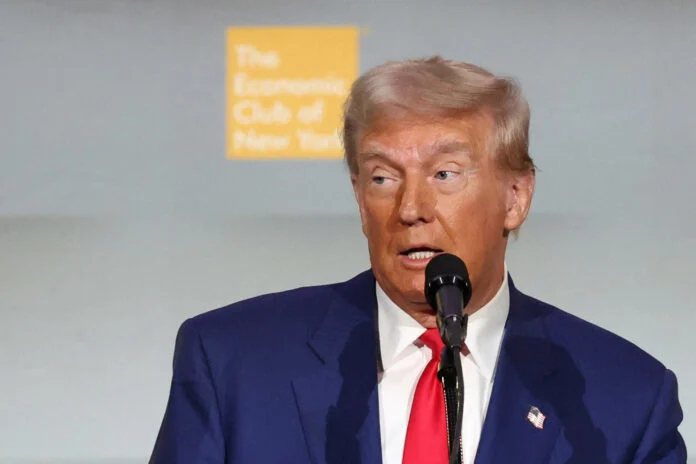
Ο πρώην πρόεδρος των ΗΠΑ Ντόναλντ Τραμπ λέει στον συντηρητικό ραδιοφωνικό παρουσιαστή Hugh Hewitt: «Το Ισραήλ πρέπει να κάνει ένα πράγμα. Πρέπει να είναι έξυπνοι για τον Τραμπ. Γιατί δεν με στηρίζουν. Έκανα περισσότερα από οποιονδήποτε για το Ισραήλ, έκανα περισσότερα από οποιονδήποτε για τον εβραϊκό λαό. Και δεν είναι αμοιβαίο, όπως λένε».
Δεν είναι σαφές εάν ο Ρεπουμπλικανός υποψήφιος για την προεδρία ήθελε να πει «Αμερικανοί Εβραίοι» αντί για «Ισραήλ» στην πρώτη φράση, αλλά συχνά συγχέει τα δύο και οδηγεί σε κατηγορίες ότι χρησιμοποιεί αντισημιτικά ρητορική.
Ο Τραμπ έχει επανειλημμένα καταφερθεί κατά των Αμερικανοεβραίων επειδή δεν τον υποστήριξαν περισσότερο και είπε τον περασμένο μήνα ότι οι Εβραίοι θα έχουν πολλές ευθύνες αν χάσει τον Νοέμβριο. Αλλά συνήθως δεν ισχυρίζεται ότι το Ισραήλ δεν τον υποστηρίζει, και μάλιστα μερικές φορές επικαλείται δημοσκόπηση που δείχνει ότι οι Ισραηλινοί τον υποστηρίζουν σε πολύ υψηλά νούμερα.
-
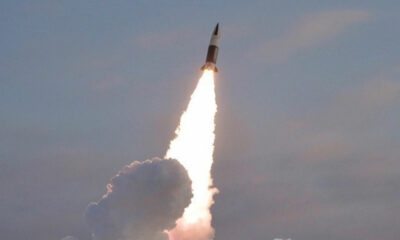
 Ιράν20 ώρες πριν
Ιράν20 ώρες πρινΚόκκινος συναγερμός στο κεντρικό Ισραήλ! Εκτοξεύτηκε βαλλιστικός πύραυλος από την Υεμένη – Αναχαιτίστηκε με επιτυχία λέει ο IDF
-

 Video1 ημέρα πριν
Video1 ημέρα πρινΙσραήλ: Αν χτυπήσει πυρηνικά, αρχίζει η καταστροφή
-

 Video1 ημέρα πριν
Video1 ημέρα πρινΑσταμάτητο το Ισραήλ! Βομβάρδισε Ρωσική βάση στην Συρία
-
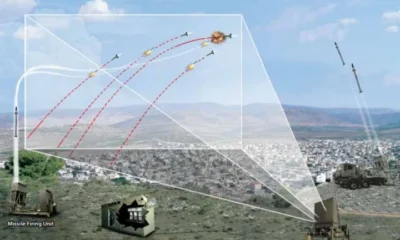
 Εθνική Άμυνα6 ώρες πριν
Εθνική Άμυνα6 ώρες πρινΈτοιμος σε 3 χρόνια ο ελληνικός Σιδερένιος Θόλος! Πόσο θα κοστίσει;
-
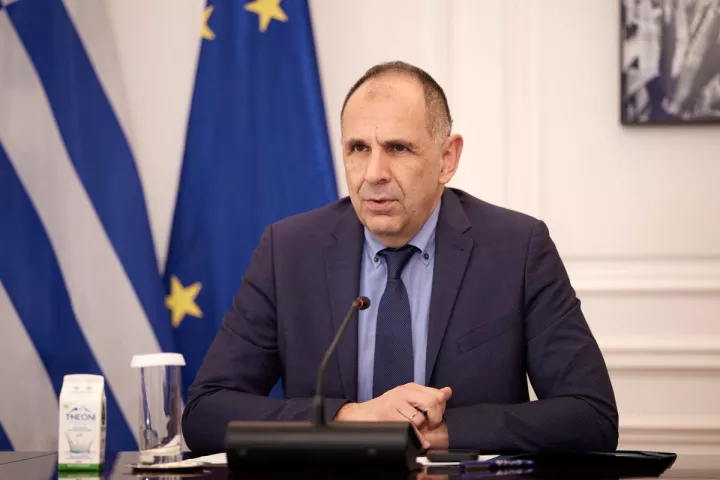
 Αναλύσεις3 ημέρες πριν
Αναλύσεις3 ημέρες πρινQuo vadis κύριε Γεραπετρίτη;
-

 Γενικά θέματα3 ημέρες πριν
Γενικά θέματα3 ημέρες πρινΜία νέα αρχή για το «Γεωπολιτικό»
-
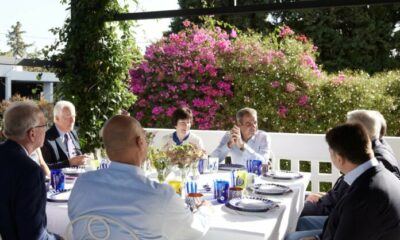
 Εξωτερική Πολιτική3 ημέρες πριν
Εξωτερική Πολιτική3 ημέρες πρινΣτο επίκεντρο η ελληνοαμερικανική συνεργασία σε συνάντηση του Μητσοτάκη με Αμερικανούς γερουσιαστές στα Χανιά
-

 Video1 ημέρα πριν
Video1 ημέρα πρινΣάββας Καλεντερίδης: Δείτε ποιοι μας κυβέρνησαν και ποιοι μας κυβερνούν!

